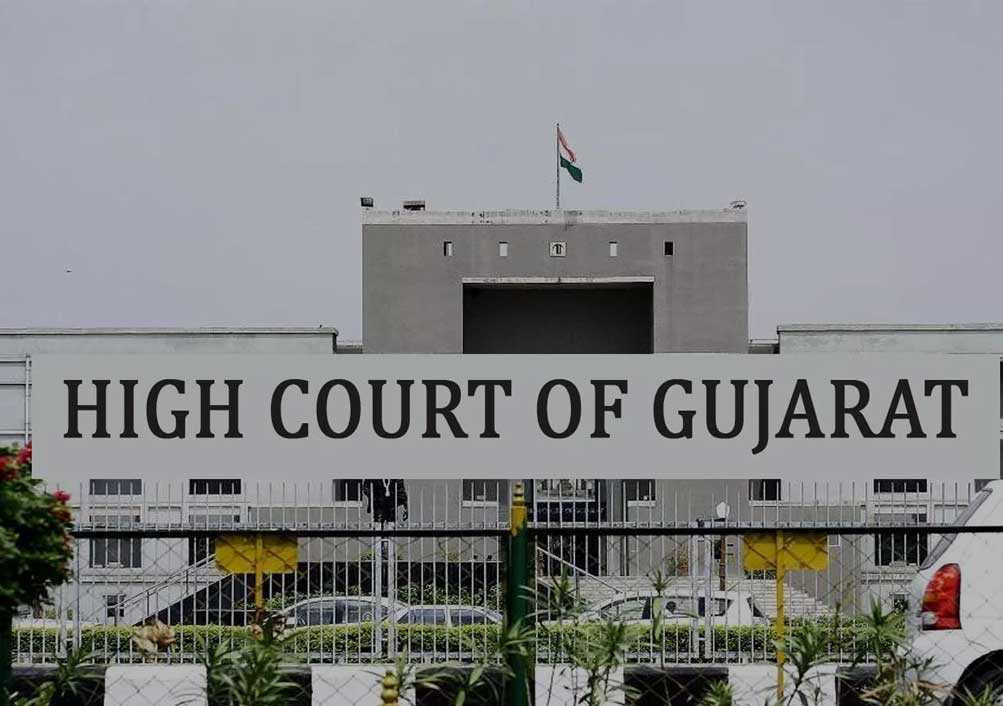In R/SPECIAL CIVIL APPL. No.18056 of 2022-GUJ HC- Right to life extends to natural persons and not just citizens: Gujarat HC declares requirement of domicile certificate in order to be registered as recipient on State list for cadaveric transplant of organ in Gujarat to be illegal
Justice Biren Vaishnav [21-11-2022]

Read Order:VIDYA RAMESH CHAND SHAH Vs. STATE OF GUJARAT
Tulip Kanth
Ahmedabad, November 22, 2022: Paragraphs 13.1 and 13.10(C) of the Gujarat Deceased Donor Organ and the Tissue Transplantation Guidelines whereby a domicile certificate is required in order to be registered as a recipient on the State list for cadaveric transplant of an organ in Gujarat have been held to be illegal by the Gujarat High Court.
“The concept of the Organ Transplant Registry to include information providing a demographic data under Rule 32(1) cannot be a tool to support the need for a domicile certificate as the intention of the need of a demographic data is for an efficient need based statistic of the National Registry Pan India”, Justice Biren Vaishnav asserted.
The factual background of this case was such that the petitioner, a Canadian citizen and an overseas citizen of India, got married to one Prashant Ajmera and moved to Montreal, Canada, where she resided with her husband and three children till the year 2009. When the petitioner moved back to Ahmedabad she received her Overseas Citizen of India card (OCI) , driving license and Aadhar card.
The petitioner was diagnosed with less than benchmark functioning of the kidney and has been required to undergo dialysis twice a week. She has been recommended a kidney transplant. To undergo such transplant, the petitioner has to be registered as a recipient under the Transplantation of Human Organs and Tissues Act, 1994 and the Regulations thereunder.
The State Government had notified guidelines to monitor as well as regulate the process of donation and transportation of human organs by a notification dated March 14, 2019. Petitioner’s request for registration was turned down orally on the ground that she would require a domicile certificate. A request made for such certificate had also been rejected by the police authorities on the ground that the petitioner is a Canadian national, not an Indian citizen and therefore not entitled to a domicile certificate.
Henc, the petitioner approached the High Court requesting for her registration under State list for Cadaveric Kidney Transplant in Gujarat without the condition of submitting of domicile certificate. The petitioner also made a plea to declare paragraphs 13.1 and 13.10(C) of the Gujarat Deceased Donor Organ and the Tissue Transplantation Guidelines (G-DOT) ultravires the provisions of the transplantation of Human Organs Act, 1994 and Transplantation of Human Organs and Tissues Rules, 2014.
The Bench clarified that cadaver transplants are where a donor has either consented before death or did not consent before death, the Bench opined, “
“Article 21 of the Constitution of India is at the heart of the Constitution. Right to life therefore is a fundamental right available to a person. It extends to natural persons and not just citizens”, the Bench said while noting that denial of medical treatment to the petitioners who are not domiciles of Gujarat is illegal and unconstitutional.
Considering the fact that by way of paragraph No.13(1) and 13(10)(C), the State has tried to introduce a new criterion of requirement of a domicile certificate for registration of a patient for enrolling him on the State List for organ transplant, the Bench held that the introduction of such criteria by a guideline, in the nature of executive instructions is in colorable exercise of powers.
Thus, allowing the petition, the Bench held Paragraph 13.1 and 13.10 (C) of the Gujarat Deceased Donor Organ and Tissue Transplantation Guidelines (G – DOT) to be ultra-vires the provisions of the Transplantation of Human Organs Act, 1994, and Transplantation of Human Organs and Tissues Rules 2014. They were also delcared unconstitutional, unreasonable and in violation of fundamental rights under Articles 14 and 21 of the Constitution of India
Sign up for our weekly newsletter to stay up to date on our product, events featured blog, special offer and all of the exciting things that take place here at Legitquest.




Add a Comment